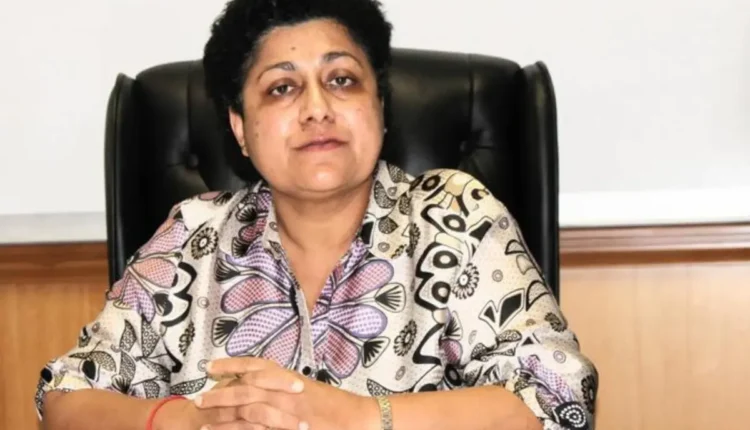Magesvari Maggie Govender is a name synonymous with resilience, activism, and leadership in the fight against apartheid and her enduring service to South Africa’s democracy. As a politician representing the African National Congress (ANC) in the KwaZulu-Natal Provincial Legislature, she has spent decades striving for justice, equality, and the betterment of society. Her journey from an oppressed young woman to a dedicated leader is a source of inspiration to many in South Africa and beyond.
Early Life and Activism of Maggie Govender: The Foundations of Resilience
Born in Durban, in the then-Natal province, Magesvari Govender was only eleven years old when her family was forcibly resettled to Chatsworth. This move, enforced under the apartheid-era Group Areas Act, tore her away from the familiar surroundings of Durban Central. The brutal nature of apartheid was a harsh reality for Govender, and this formative experience sparked the early seeds of her activism.
Maggie Govender attended Chatsworth Secondary School, where she was determined to make a difference, choosing not to passively accept the oppressive systems that dictated her life. After enrolling at the University of Durban-Westville, she initially pursued a medical degree but soon realized that her passion lay in humanities and activism.
It was here that she became deeply involved in political activity. Through the student representative council, the Natal Indian Congress, and the Chatsworth Housing Action Committee, Govender began what would be a lifelong commitment to fighting injustice.
Her bravery and steadfast belief in human rights propelled her to join the United Democratic Front. As Maggie Govender became more deeply involved in the anti-apartheid struggle, Govender’s fearlessness grew, and she continued her activism despite the dangers that loomed over all dissidents.
The government’s response was severe; in 1986, during the state of emergency, Govender was detained without trial for four months. Her imprisonment was an attempt to stifle her voice, but upon release, she emerged stronger, her resolve hardened by the experience.
A Commitment to Teaching and the Union Movement
Maggie Govender’s determination to uplift her community extended into education. She began her career as a teacher in 1984 in Chatsworth, instilling knowledge and empowerment in future generations. Yet, even in this role, she never ceased her activism. After her detention, she moved to teach in Umkomaas but later took on the role of an education officer at the Garment Workers’ Union.
During her time with the union, it became affiliated with the Congress of South African Trade Unions (COSATU), further entrenching her connections to the ANC. Govender worked tirelessly to mobilize workers and organize efforts to fight for their rights.
Maggie Govender never hesitated to challenge the status quo, and this boldness was evident in her contributions to Operation Vula, a secret ANC initiative to smuggle arms and resources for the anti-apartheid struggle. Her underground work was vital in keeping the flame of resistance alive when the odds were stacked against them.
Breaking Barriers in Government: Serving in the KwaZulu-Natal Legislature
With the fall of apartheid, Maggie Govender transitioned from activist to politician. Her tireless work within the ANC and commitment to social justice naturally led her to serve in the KwaZulu-Natal Provincial Legislature, representing the party. Her focus was clear: to uplift the marginalized and disenfranchised.
In 2009, Maggie Govender was appointed to the KwaZulu-Natal Executive Council as the Member of the Executive Council (MEC) for Human Settlements and Public Works. Her appointment reflected her deep understanding of the need for equitable development in South Africa, where millions had been denied access to basic services for decades.
As MEC, Maggie Govender took bold steps to address housing shortages and create sustainable living conditions for the underserved. Her leadership was marked by an unwavering commitment to ensuring that human settlements were not just about providing homes, but about building communities where dignity and respect were paramount.
Maggie Govender’s tenure also involved overseeing public works projects, laying the groundwork for infrastructure development that would benefit generations to come.
However, political life is often fraught with challenges, and Govender’s journey was no exception. In November 2011, a cabinet reshuffle led to her being replaced as MEC. Though she left the executive role, her commitment to her constituents never wavered. She continued serving as an ordinary Member of the Provincial Legislature, a testament to her dedication to public service.
Enduring Influence and Personal Life
In the subsequent years, Govender remained an influential figure within the ANC and continued to play a crucial role in shaping policy and advocating for the rights of the people. Her re-election in the 2014 and 2019 general elections demonstrated the trust and respect she had earned within her community and among her peers. Despite no longer holding an executive position, her voice in the legislature remained a powerful force for change.
In addition to her political career, Govender’s personal life was marked by deep connections to the struggle for freedom. She married her fellow activist, Pathsarvasvaran Samotharan “Charm” Govender, in 1984.
Charm Govender was a respected figure in his own right, having worked at the South African Revenue Service and continuing his involvement in social justice causes until his passing in 2021. The couple shared a deep bond forged by their shared values and their commitment to South Africa’s liberation.
Together, they raised two sons, Megalen and Yeshelen, both born in the 1980s. Govender’s family life was a source of strength, grounding her in the work she was doing to secure a better future for all South Africans.
Also Read:Raminder Singh Gill: From Entrepreneur to Advocate for Canadian Citizenship

